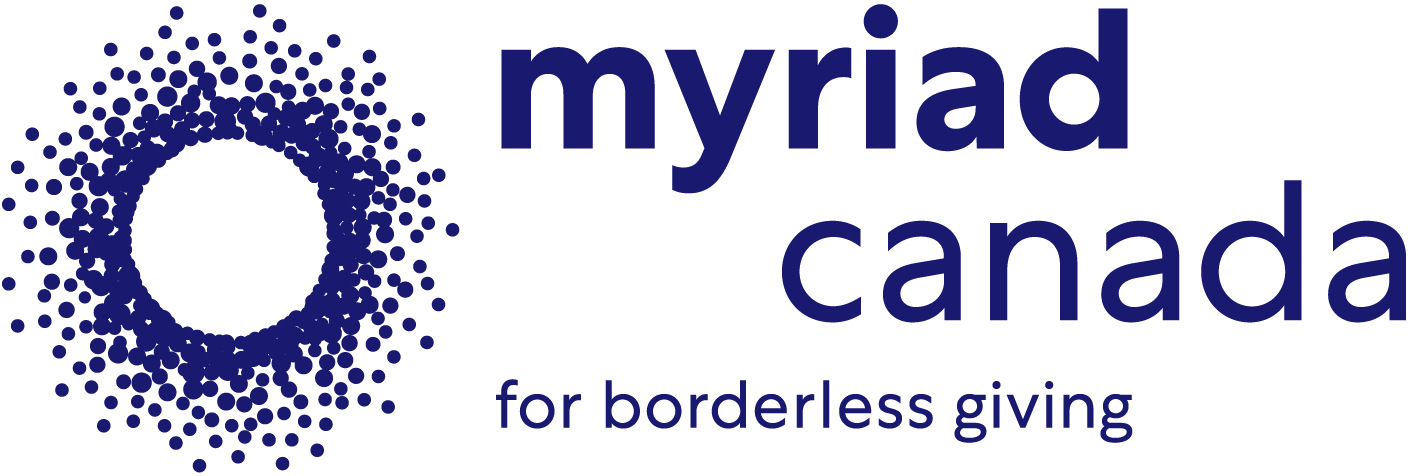D303 - Expanding Reproductive Choices for Women and Girls in Francophone Africa, with MSI
Registered Name: Myriad Canada Foundation
Business No: 769784893RR0001
This organization is designated by Canada Revenue Agency (CRA) as a registered charity. They comply with the CRA's requirements and have been issued a charitable registration number.
This charity is fully set up with CanadaHelps, allowing for faster donation processing and access to more features
Francophone African countries have some of the highest unmet needs for sexual and reproductive health services in the world, with the Sahel region - home to approximately 70.8 million people - facing some of the starkest health and development challenges. In Mali and Niger, almost half of women have had their first child by the time they are 18. With nearly 50% of the population under the age of 15, the need for sexual and reproductive health awareness and services is significant and growing.
Lack of access to reproductive health services has dire consequences. In the Sahel, only 20% of women of reproductive age use a modern contraceptive method, and 25% of all married women want to use contraception but are not able to. These women die from pregnancy related causes at some of the highest rates in the world. Limited access to and availability of health services, traditional social and cultural norms, stigma and lack of knowledge all prevent millions of women and adolescents from getting the sexual and reproductive health services they want and need.
In Madagascar, there are millions of women of reproductive age. Although the country has made great strides in increasing access to modern contraceptive methods, 24% of women who want to use modern contraception currently don’t have access to it. This lack of access to sexual and reproductive health services not only limits women’s choices and their ability to control their futures, but also contributes to poor health outcomes. The maternal mortality rate (MMR) in Madagascar is amongst the highest in the world, and unintended pregnancies leading to unplanned births and unsafe abortions is one of the leading causes of maternal mortality and morbidity.
Madagascar suffers from incredibly high levels of poverty, with 78% of people living on less than USD $1.90 per day. One out of three girls become unintentionally pregnant before the age of 18 and as a result, hundreds of adolescent mothers do not complete formal education because of the stigma associated with having a child outside of wedlock, the financial burden of an unwanted pregnancy and lack of societal support. This lack of education ultimately undermines their rights and limits their economic opportunities.
It is adolescent girls and young women who are most at risk, as it is they who face the consequential social, economic, cultural and policy barriers to accessing reproductive health information and care. Some may live too far from a facility and in some countries, partner and/or parental consent is required, which restricts access. If they do access a clinic, they may face judgmental and non-empathetic staff. As there is no comprehensive sexuality education in schools, adolescents’ access to credible information is very limited; rumors or myths from friends or community members may be their only source.
Early pregnancy means higher morbidity and mortality for both mother and child; complications from pregnancy, childbirth and unsafe abortion are leading causes of death among adolescent girls in these countries. 25% of all unsafe abortions in Africa are carried out on adolescents ages 15-19 years, and 70% of women hospitalized from complications of unsafe abortion are under 20 years old.
The goals of this project are to:
- Give underserved communities in Francophone Africa in countries such as Burkina Faso and Madagascar agency to access comprehensive sexual and reproductive health services on their own terms and according to their needs;
- Provide contraceptive choice by making the full range of methods available, including implants and IUDs which are usually not otherwise available;
- Provide life-saving care and services to prevent death and disability due to unsafe abortions and enable women and adolescent girls to realize their rights to sexual and reproductive health;
- Empower women and adolescent girls to make informed decisions, without coercion, about when, if and how many children they want, thereby enabling them to own their future and improve their health and life prospects and contribute equally to family wellbeing and community progress.
Activities to achieve this goal:
- Provide a full range of contraceptive methods including short-term contraception (male and female condoms, oral contraceptives, progestin-only pill and injectables), long-acting reversible contraception (IUDs and implants), permanent contraception (tubal ligation for women and vasectomy for men) and emergency contraception.
- Work towards eradicating unsafe abortion by increasing access to safe services in as many locations as possible. The services include: medication abortion, surgical abortion (performed by a doctor) and post-abortion care services where we offer immediate life-saving medical care for women suffering complications from an unsafe termination.
- Offer a three-pronged approach to increasing access to safe abortion, post-abortion care, and contraception including:
- Increase access to “last mile communities” that are beyond the reach of national healthcare systems by bringing services directly to them. This is either through the MSI Outreach Teams, where doctors and nurses travel to communities and provide services on planned days, or through the MS Ladies, community-based nurses and midwives who are trusted providers of safe, confidential services.
- Establish public sector partnership models to transition towards national ownership of sexual and reproductive health services;
- Expand access to adolescent sexual and reproductive healthcare by ensuring that the health-care providers deliver quality, adolescent-friendly services that can be offered in discreet locations, such as the MS Ladies home clinic.
Key Performance Indicators to be reached:
- Number of contraception and safe abortion/post abortion care services delivered to adolescents 15-19 in Francophone African countries including: Burkina Faso, Mali, Niger Senegal, Democratic Republic of Congo and Madagascar
- Number of unsafe abortions and maternal deaths averted
- Number and percentage of clients who are high-impact clients, a group that includes adolescents, people who had no other way of accessing services, people living in poverty, and people who use contraception for the first time.
Myriad Canada is working with MSI Reproductive Choices (MSI) on this project. MSI was founded in 1976 and is one of the largest non-profit voluntary family planning and safe abortion organizations in the world, currently working in 37 countries across six continents with the help of more than 11,000 team members. MSI is committed to upholding the fundamental right of women and girls and men and boys to decide freely, and without coercion, the number and spacing of their children. They provide safe abortion services within the fullest extent of local legal frameworks. They provide post-abortion care, to make sure immediate life-saving medical care is available to women suffering complications from unsafe abortion. By providing safe abortion and post-abortion care, they eliminate deaths from unsafe abortion and ensure women are able to have children by choice, not chance.
In 2020, despite the challenges presented by the pandemic, our teams served 12.8 million people – 35,000 every day – with high-quality sexual and reproductive health services. Around the world, there are an estimated 32.6 million people using a method of contraception provided by MSI Reproductive Choices. These services averted an estimated 35,000 maternal deaths, 5.6 million unsafe abortions and 13.4 million unintended pregnancies.

